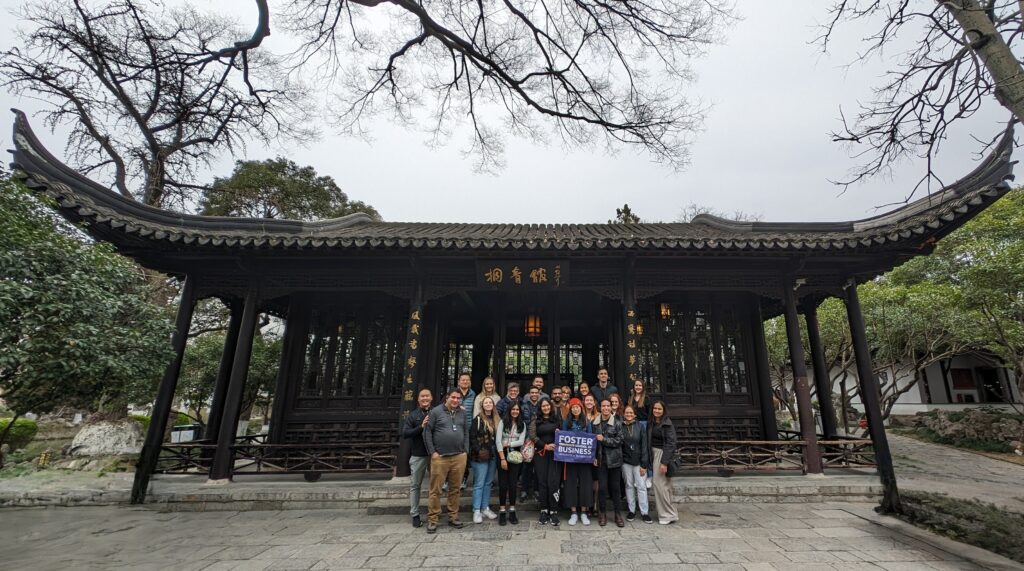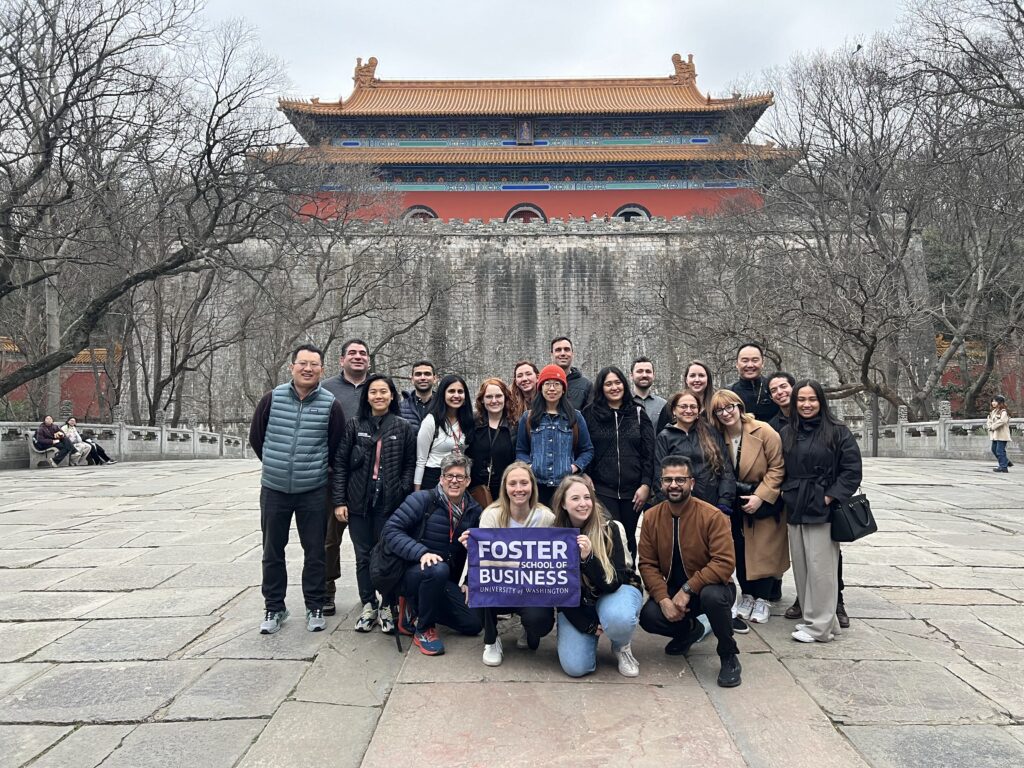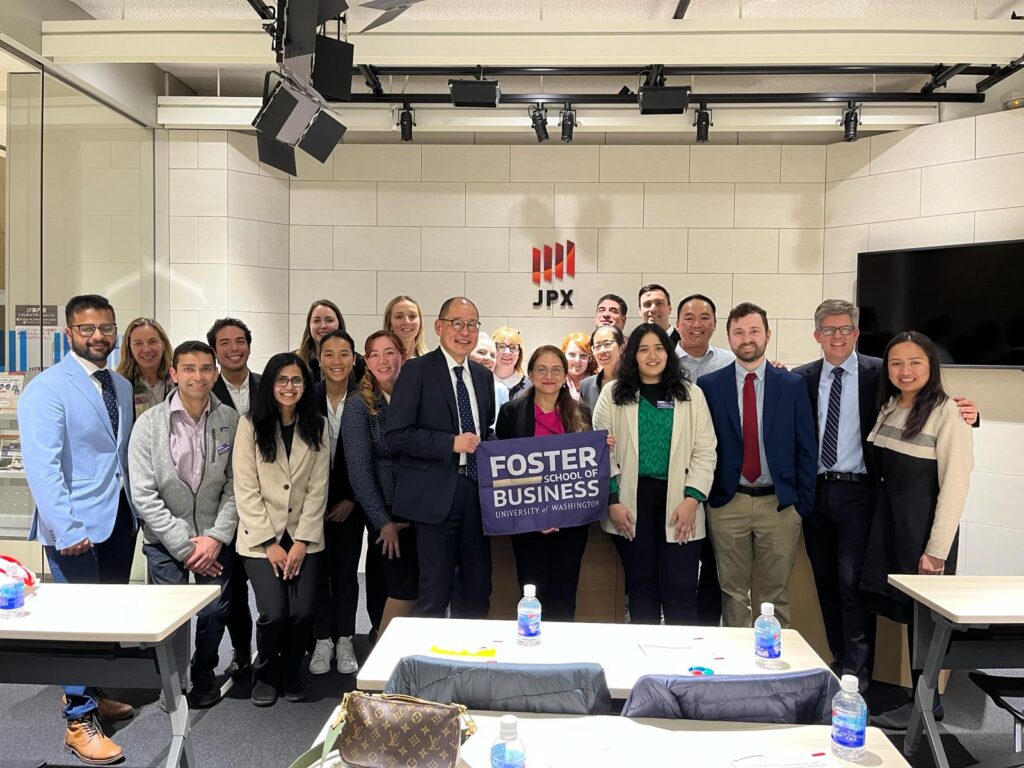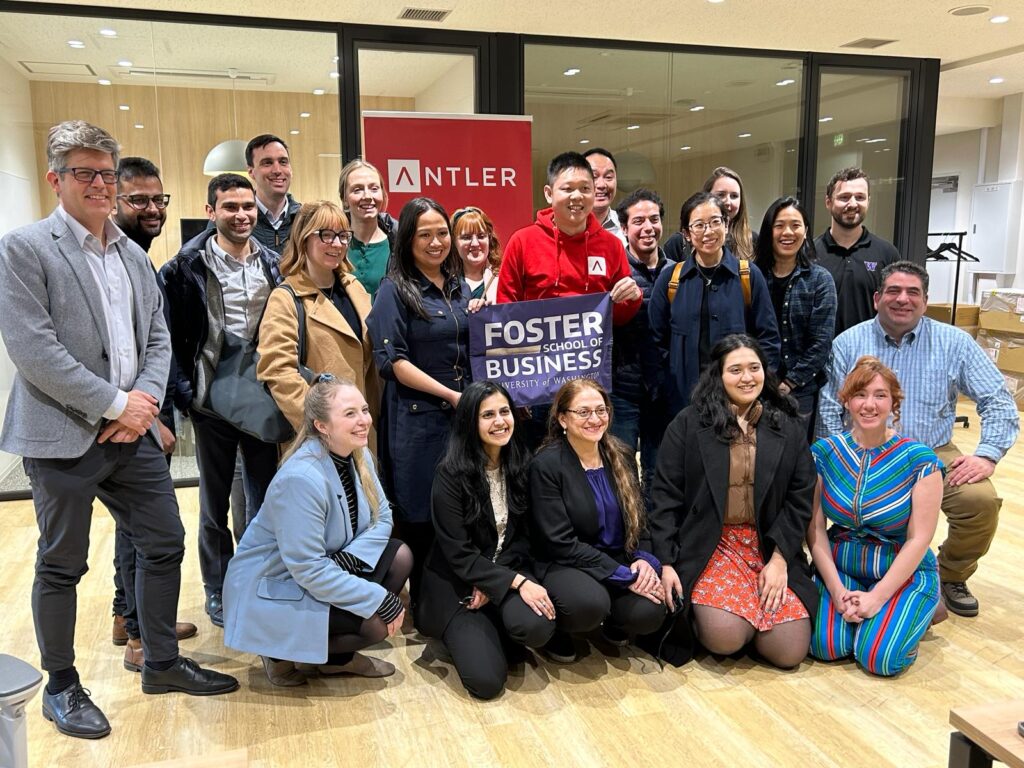Asian Capital Markets Study Tour Spring 2024
Guest Post By: Xhoj Hysenaj, a Full-Time MBA Candidate. She is a Global Business Center Study Abroad Scholarship Recipient, and she studied abroad through FIN 579: Asian Capital Markets during Spring Break 2024.
During my spring break, I embarked on an extraordinary journey to China and Japan as part of the University of Washington MBA Study Tour. This was my maiden voyage to Asia, and the experience of visiting two such distinct nations was nothing short of spectacular. To prepare, I enrolled in the Asian Capital Markets class, which proved invaluable in understanding the complex economic environments we would encounter—a course I would definitely recommend.
Our adventure began in Shanghai, China. Arriving at night and driving through the city from Pudong International Airport, I was immediately struck by the sight of the so-called “ghost cities.” These are ambitious urban development projects designed by the Chinese government to drive urbanization and accommodate future demographic shifts from rural areas. Yet, seeing these vast, yet unoccupied urban expanses was both awe-inspiring and somewhat surreal.
A notable highlight was our day trip to Nanjing. We traveled by bullet train, a marvel in itself, though the security procedures at the stations were unexpectedly stringent, akin to those at airports. In Nanjing, the museum visit was profoundly moving. As someone passionate about history, I’ve read extensively about the darker chapters of conflicts here, but experiencing these stories firsthand, viewing the exhibits—it was deeply affecting.
Throughout the tour, our knowledgeable guide enriched our understanding of China’s rich tapestry of history, from the grandeur of the Ming Dynasty to the complexities of modern Communist rule. This historical context added layers to our main focus: the financial markets.


In meetings with several top financial institutions, the presence of our accomplished faculty members, Professors Yang and Stephan, was instrumental. They posed critical questions which, due to the restrictive political environment, often went unanswered by our hosts. This experience underscored the challenges and nuances of conducting business and performing economic research in restrictive regimes.
These encounters not only highlighted the dynamic nature of Asian capital markets but also illustrated the varying degrees of transparency and regulation that can exist in international finance. Such insights are crucial for any MBA student with aspirations in global finance, providing a real-world complement to academic studies.


This study tour was a life-changing educational experience, blending historical, cultural, and financial learnings in a way that books and lectures simply cannot replicate. It was an invaluable first-hand glimpse into the forces shaping two of the world’s most pivotal markets. I returned with not only a deeper understanding but also a renewed enthusiasm for my future career in finance, inspired by the vibrant and diverse financial landscapes of Asia.
